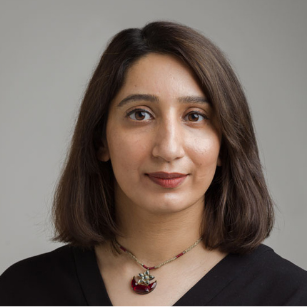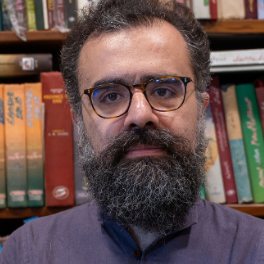Presented by Penn's South Asia Center
Please join the South Asia Center for a special screening of Buhay Khulay Rakhi (Let the Doors Stay Open) and a post-screening discussion with Nida Mehboob, the filmmaker, and Ali Usman Qasmi, the film producer, moderated by Wolf Humanities Center Director and Penn Professor of Religious Studies Jamal J. Elias.
Film Duration: 35 minutes
Genre: Historical Documentary
Language: Punjabi, Urdu, Hindi (with English subtitles)
Buhay Khulay Rakhi is a documentary film that narrates stories of violence, displacement, and sometimes forced reunions. It covers the experiences of people committing acts of brutal violence while also showcasing stories of affection, care, and love. Amidst the chaotic violence that erupted during the Partition, thousands of women and children were abducted or separated from their families. While there has been significant academic and literary focus on the women forced to live with their abductors, the stories of Partition's children have often been forgotten or overlooked.
The film recounts how infants, some as young as six months old, were separated from their families during the turmoil of Partition and later lovingly adopted and raised by foster parents. These stories are told through the lives of Qari Farooq and Fazal Ahmad, who were infants when their parents, fleeing violence, were forced to abandon them. Farooq and Ahmad were adopted by Sikh and Dalit foster parents before being forced to return to Pakistan due to their Muslim heritage.
Primarily shot in the shelter home in Lahore, where Farooq, Fazal, and dozens of other children with similar backgrounds were raised after their return to Pakistan, the documentary uses personal testimonies, expert commentary, and rare archival material to tell a story of displacement, trauma, and resilience. It raises complex questions about identity, belonging, and what it means to live with the memory of violence and loss. Ultimately, it explores the possibility of reconciliation and remembrance as a process of healing and forgiveness between people across the border.
Cosponsored by the Penn Forum for Global Islamic Studies and the Wolf Humanities Center.
 Nida Mehboob is a photographer and filmmaker based in Lahore, Pakistan. She graduated as a pharmacist but left the field and started photography. Since then she has been doing documentary projects, including a few short films. She received her diploma in photography from Pathshala South Asian Media Institute in 2019. She is currently finishing her masters in documentary filmmaking at Aalto University, Helsinki.
Nida Mehboob is a photographer and filmmaker based in Lahore, Pakistan. She graduated as a pharmacist but left the field and started photography. Since then she has been doing documentary projects, including a few short films. She received her diploma in photography from Pathshala South Asian Media Institute in 2019. She is currently finishing her masters in documentary filmmaking at Aalto University, Helsinki.
 Ali Usman Qasmi, Associate Professor of History at the School of Humanities and Social Sciences at Lahore University of Management Sciences, received his PhD from the South Asia Institute of Heidelberg University in March 2009. Before joining LUMS in 2012, he was a Newton Fellow for postdoctoral research at Royal Holloway College, University of London. He has published extensively in reputed academic journals and is the author of Questioning the Authority of the Past: The Ahl al-Qur'an Movements in the Punjab (Karachi: Oxford University Press, 2011).
Ali Usman Qasmi, Associate Professor of History at the School of Humanities and Social Sciences at Lahore University of Management Sciences, received his PhD from the South Asia Institute of Heidelberg University in March 2009. Before joining LUMS in 2012, he was a Newton Fellow for postdoctoral research at Royal Holloway College, University of London. He has published extensively in reputed academic journals and is the author of Questioning the Authority of the Past: The Ahl al-Qur'an Movements in the Punjab (Karachi: Oxford University Press, 2011).



